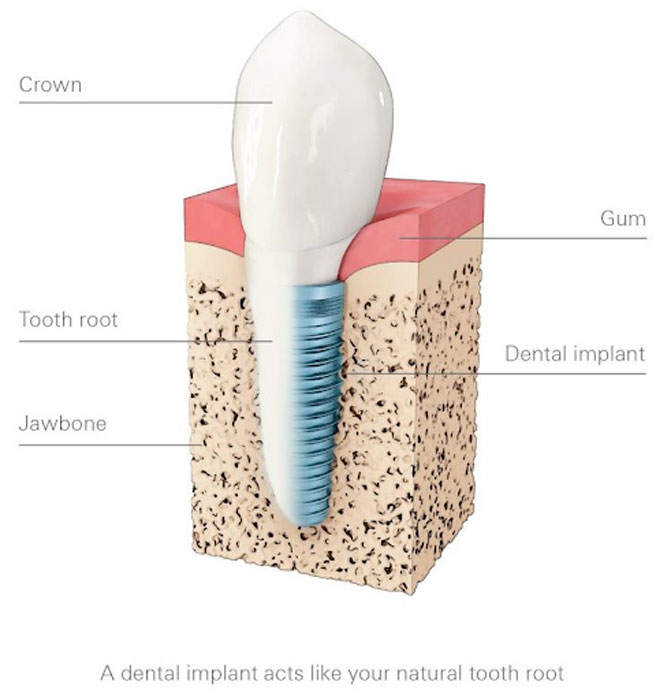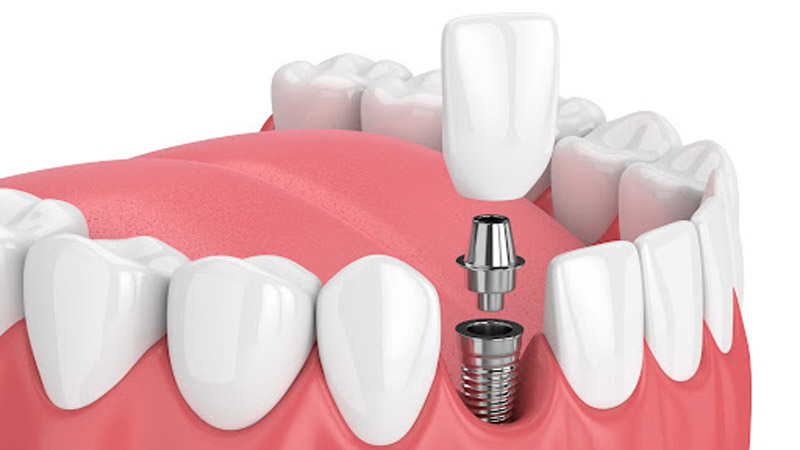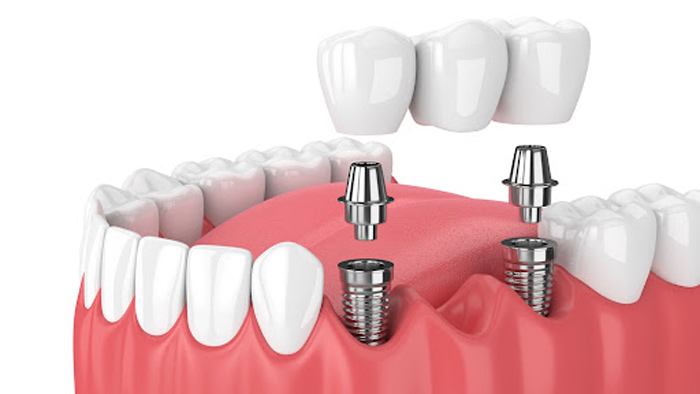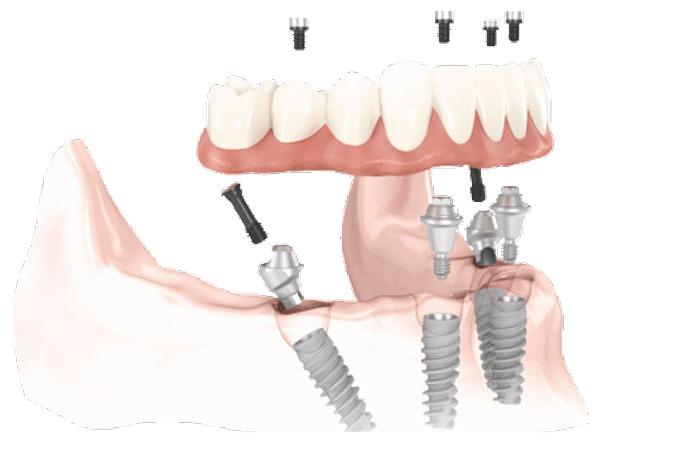Dental Implants
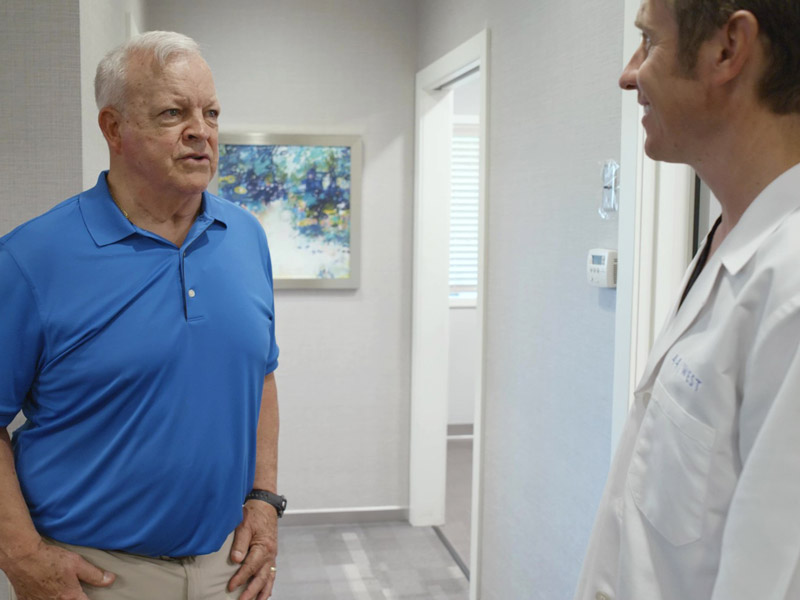 Modern dental implants are one of the best and most popular ways of replacing missing teeth. In fact, they are the closest you can get to natural-looking, pearly white teeth. Our dental implant dentists in Grandville, MI, can help you put your best smile forward. That way, you can continue to eat, talk, and enjoy all that life has to offer.
Modern dental implants are one of the best and most popular ways of replacing missing teeth. In fact, they are the closest you can get to natural-looking, pearly white teeth. Our dental implant dentists in Grandville, MI, can help you put your best smile forward. That way, you can continue to eat, talk, and enjoy all that life has to offer.
Learn more about how dental implants work and why you may want to get your own to create your perfect smile.
How Do Dental Implants Work?
The best analogy for a tooth implant is that of a screw or post that is placed into the jawbone. A dental implant functions very similarly to a tooth root in that it is meant to support one or more artificial teeth.
Once the implant is placed and is allowed to heal into the bone, it can then be restored using one of a few different treatment options. The result is a realistic, healthy-looking tooth that is sturdy and is fit to withstand everyday activities such as talking and eating.
What are the Advantages of Dental Implants?
The dental implant procedure offers many advantages over more traditional methods for replacing teeth.
The advantages of dental implants include:
- Increased chewing ability
- Realistic, healthy appearance
- Improved speech
- Durable, long-lasting solution
- Improved comfort
- Ease of cleaning
- Improved confidence
If you have been affected by damaged or missing teeth, dental implants may relieve your anxieties and bring a range of benefits.
Restore your confidence and love your smile again with dental implant treatment. Schedule a consultation with one of our dental implant dentists in Grandville, MI, to discuss your options.
How Do You Replace a Missing Tooth?
What are the Disadvantages of Dental Implants?
There are really only two main disadvantages to dental implants over other tooth replacement options.
First, the process can often take a bit longer overall since it is important to wait for the implant and the surrounding bone to fully heal before moving onto the final restoration. Healing time is traditionally three to four months, but can differ depending on individual circumstances.
Second, the up-front cost of treatment for dental implants is often higher than alternative treatments such as traditional dentures or partials. However, this valuable investment can actually decrease long-term expenses versus traditional treatment options because of the high rate of success.
Since we believe so strongly in the value that dental implants provide, we are happy to discuss ways to make dental implants convenient and affordable for every one of our patients.
How are Dental Implants Used to Replace Missing Teeth?
There are multiple ways that dental implants can be used to replace missing teeth. These include as a single crown, with a bridge, or with partial dentures.
Dental Crowns
The most common way implants are used is with a single dental crown – just like a crown on a natural tooth.
In this configuration, there are three parts to the total restoration: the dental implant, the porcelain crown, and an abutment which serves as a link between the implant and crown. When restored with a single crown, you would use one dental implant to replace each missing tooth.
This is the most natural way to restore with a dental implant because it is the most similar to a real tooth. Once healed and restored, the implant is brushed, flossed, and used just like a tooth is.
Dental Bridges
For longer spans of missing teeth, multiple tooth implants can be used to support a bridge. A dental bridge on implants follows the same principles as a bridge supported by teeth: two (or more) implants are able to support three (or more) artificial teeth. In this case, the implants are placed in the areas with the best quality of bone and the teeth are placed to fit and function well with the bite and other remaining teeth.
Partial Dentures
A third way dental implants can be used to replace teeth is in combination with a partial denture (a.k.a. “partial”). Partials are a good option for replacing multiple teeth with one appliance when there are still healthy teeth remaining in that arch. However, partials rely on those remaining teeth to support the artificial teeth.
If those teeth weaken with time or if there are only a few teeth remaining, the partial may be loose or move around when chewing. That is where one or two implants can be used to attach to the partial and help to hold it firmly in place. The partial is still removable, but it now has more strength and resiliency to chewing.
What If All the Teeth in an Arch are Missing?
Traditional removable dentures are notorious for coming loose and are often uncomfortable to chew with or speak. Dental implants offer a predictable and convenient way to overcome these shortcomings. There are three ways of using dental implants to reinforce and support a full-arch set of teeth.
Locator Attachments
This is the most common way to reinforce dentures, especially lower dentures which are often more difficult to adapt to the upper dentures. Two implants are generally placed near to the front of the mouth.
Connected to the dental implant is a special locator abutment, which serves as a link between the implants and the denture. On the underside of the denture are corresponding attachments which fit over the locator abutments and snaps together.
The denture is still removable for proper cleaning, but it now has improved retention so that it stays in place while eating and speaking.
Bar Overdenture
Another step up from locator attachments is a bar overdenture, which uses a hidden yet rigid titanium bar that connects four or more implants. This denture is also removable for cleaning but has the additional advantage of being much more stable and rigid, offering more tooth-like chewing function.
Fixed All-On-4™ Denture
An All-On-4™ denture (also known as a “fixed hybrid denture”) also uses 4 or more implants. However, in this case, instead of the denture being removable, it is fixed to the implants. This offers the most tooth-like solution of all.
Another significant advantage of the All-On-4™ technique is that it is often possible to place the prosthesis immediately after the implants are placed, allowing you to leave that day with fully functional dentures right away!
If you already have a denture that you wish would fit better but are otherwise happy with, it may even be possible to add the proper implant connections to your existing denture. We are happy to discuss if this option may be right for you.
How Long Do Dental Implants Last?
When performed under ideal circumstances, dental implant surgery has a very high success rate. In fact, the reported success rates of 97 to 98% are among the highest of all available dental procedures.
Dental Implants at Our Office
Call 44 West Dental Professionals
Our dental implant dentists in Grandville, MI, are proud to serve patients throughout Greater Grand Rapids. To schedule an appointment and learn if you’re a candidate for dental implants, please call 44 West Dental Professionals at (616) 530-2200. You may also fill out our online contact form and someone from our team will reach out to you soon.
Read Our Blog Posts About Dental Implants
- Dental Implants FAQ
- Can I Get Dental Implants?
- Top Advantages of Dental Implants
- Dental Implants vs. Dentures
- What are Implant-Supported Dentures?


